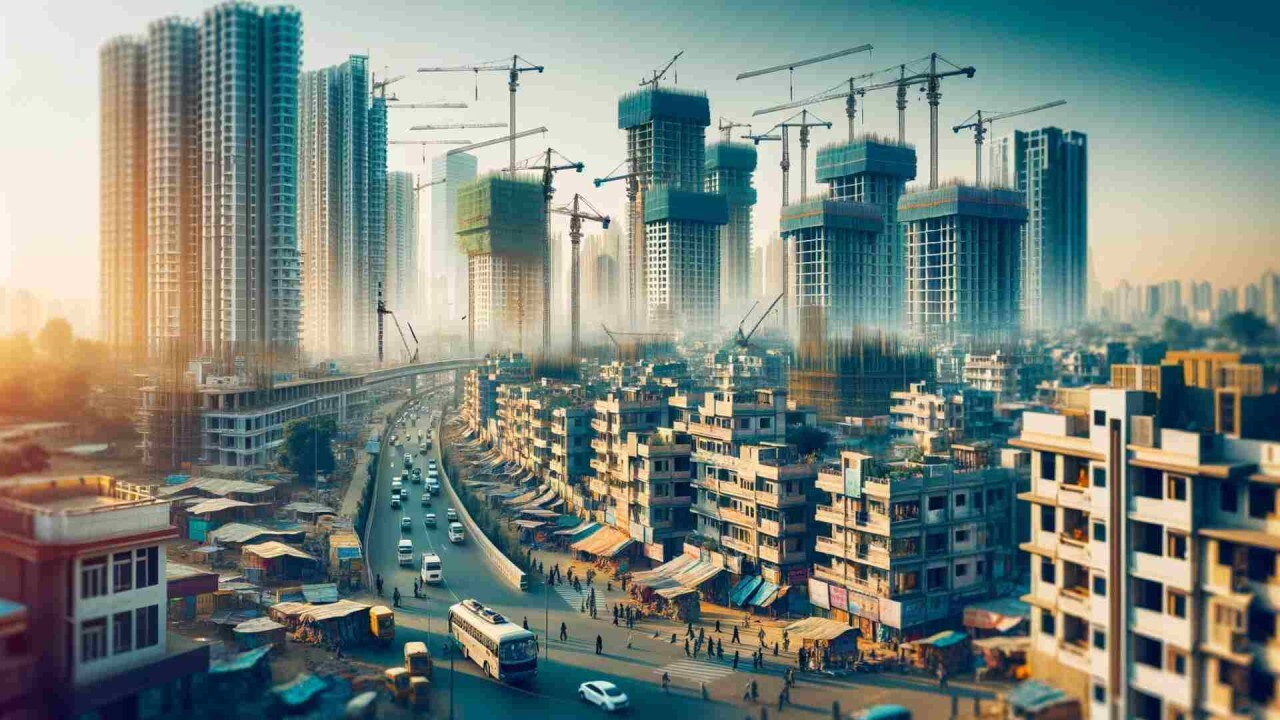India's real estate sector has witnessed remarkable growth over the past decade, becoming one of the most promising investment destinations globally. The country’s economic expansion, urbanization, and a growing middle-class population have fueled demand for both residential and commercial properties. With increasing government support and technological advancements, India’s real estate market is poised for further growth, making it an integral part of the country’s economic landscape.
Overview of India's Real Estate Market
The Indian real estate industry comprises four main sectors:
- Residential Real Estate – This includes the construction, sale, and development of housing units such as apartments, townhouses, and luxury villas.
- Commercial Real Estate – Office spaces, retail outlets, shopping malls, and co-working spaces fall under this category, which has seen a steady rise in demand, especially in urban centers.
- Industrial Real Estate – Warehousing, manufacturing units, and logistics parks are part of this sector, which has gained momentum with the growth of e-commerce and the "Make in India" initiative.
- Hospitality and Leisure – Hotels, resorts, and entertainment complexes contribute significantly to this growing sector, supported by rising tourism and business travel.
Key Factors Driving the Growth of Indian Real Estate
-
Urbanization
India is undergoing rapid urbanization, with millions migrating to cities in search of better opportunities. This has created a surge in demand for housing, particularly in Tier I and Tier II cities like Delhi, Mumbai, Bengaluru, and Pune. As more people flock to urban centers, real estate developers are constantly expanding their portfolios to accommodate the growing population. -
Government Initiatives
The Indian government has implemented several policies to stimulate the real estate sector. Key initiatives like the Real Estate (Regulation and Development) Act (RERA), the Smart Cities Mission, and the Pradhan Mantri Awas Yojana (PMAY) aim to improve transparency, accountability, and housing availability. The affordable housing segment, in particular, has received a boost with tax incentives and subsidies under PMAY, encouraging homeownership for the masses. -
Foreign Investment and REITs
Foreign Direct Investment (FDI) in real estate has been a significant driver of growth, with global investors showing increased interest in Indian property. The introduction of Real Estate Investment Trusts (REITs) has also opened new avenues for investment, allowing retail investors to participate in the commercial real estate boom and generating substantial capital inflows. -
Technology and Innovation
The Indian real estate sector is rapidly adopting digital tools to streamline operations, from virtual property tours to online booking platforms. Technology-driven solutions, such as AI for predictive analytics and smart home automation, are transforming how real estate companies interact with customers and manage properties. -
Sustainability and Green Buildings
With growing environmental consciousness, there is a rising demand for eco-friendly and energy-efficient buildings. Developers are focusing on sustainable construction practices, incorporating green building certifications and environmentally responsible designs to meet the evolving preferences of homebuyers and corporate tenants.
Challenges in India's Real Estate Sector
Despite its growth, India’s real estate sector faces several challenges:
- Land Acquisition: Acquiring land for development can be a lengthy and complex process due to legal and regulatory issues, particularly in highly populated areas.
- Regulatory Delays: Approval processes for real estate projects often face delays, affecting timelines and escalating costs for developers.
- Financing Constraints: The sector has historically faced challenges in securing affordable finance, particularly for small and mid-sized developers.
Future Outlook of India’s Real Estate
The future of India’s real estate market looks promising. The residential sector is expected to see a surge in demand, driven by affordable housing schemes, lower interest rates, and rising disposable income. The commercial real estate market, especially office spaces, co-working, and industrial properties, will continue to grow, driven by the IT sector, e-commerce, and logistics.
India’s commitment to developing 100 smart cities across the country will revolutionize the real estate landscape, with infrastructure upgrades, digital solutions, and enhanced livability in urban areas. Additionally, the integration of sustainability and green building standards will define the next phase of growth for the sector.
Conclusion
India's real estate market is at a pivotal moment, reflecting the country’s economic aspirations and demographic shifts. As urbanization continues, along with government support and increasing foreign investments, the sector is set to thrive. With ongoing innovation, sustainable practices, and improved regulations, the future of India’s real estate looks brighter than ever, offering lucrative opportunities for developers, investors, and homebuyers alike.
To buy RERA Certified & DTCP Approved Gated Community Villa Open Plots in Andhra Pradesh & Telangana please contact:
For Sales : 8179712384
Mail : sales@openplots.net
